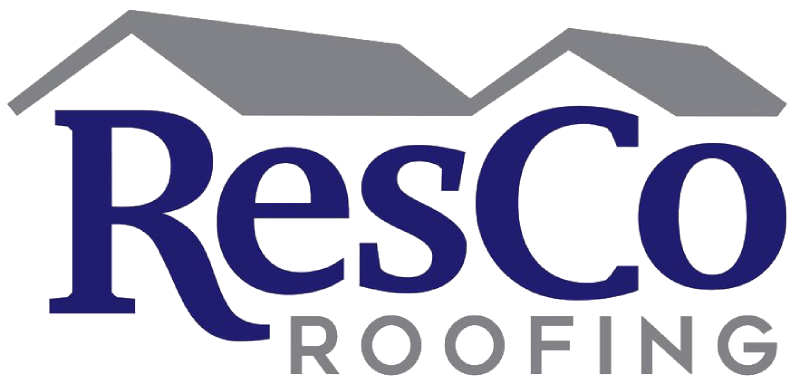The Pros and Cons of Hiring Independent Roofers Contractors Vs. Companies
When it comes to home improvement, the roof over your head is one aspect you can’t afford to compromise on. But who do you entrust with this important task: an independent roofer or a roofing company? Welcome to our in-depth blog post, ‘The Pros and Cons of Hiring Independent Roofers Contractors Vs. Companies.’ Here, we’ll dissect and delve into the unique advantages and potential pitfalls of both options. We’ll help you understand the factors that distinguish these two types of service providers – from cost-effectiveness to the breadth of services, from accountability to scalability of projects. This guide will equip you with the knowledge you need to make an informed decision that best suits your needs. So, get ready to embark on a journey of discovery that could reshape your roofing experience!
Personalized Service vs. Standardized Procedures
In the complex world of roofing, contractors often face the dilemma of choosing between personalized service and standardized procedures. Both approaches come with their unique set of advantages and challenges that can significantly impact the business’s success.
Personalized services are all about delivering a customized experience to meet the unique needs of each client. This approach allows roofers to cater to specific requirements and preferences, which can offer a competitive edge in a saturated market. However, personalization requires a high degree of flexibility and adaptability, posing potential challenges in maintaining consistent quality and efficiency.
On the other hand, standardized procedures provide consistency and scalability, which are crucial for business growth. Standardization involves developing uniform processes for tasks like creating invoices or installing roofs, ensuring efficiency and consistency in every project. This approach is particularly useful when dealing with large-scale projects where maintaining a high level of quality is paramount.
However, while standardization brings efficiency, it may limit the ability to cater to unique client needs. Striking the right balance between personalization and standardization can be the key to success for roofing contractors. It involves integrating the two approaches in a way that maintains consistent quality while still accommodating the individual needs of clients. Ultimately, the choice between personalized roofing service and standardized procedures depends on the specific needs and goals of the roofing business.

Cost Considerations: Affordability vs. Value
In the realm of roofing, one of the critical dilemmas that contractors often grapple with is the balance between affordability and value. On the surface, it might seem like a simple equation – lower cost equals higher savings. However, the reality is far more complex and nuanced.
Affordability, while an attractive proposition, should not be the sole determining factor when it comes to roofing. Opting for cheaper roofing materials or services may result in immediate savings, but it’s essential to consider the long-term implications. Lower-cost options may not offer the same durability or quality, potentially leading to frequent repairs and replacements over time, diminishing the initial savings.
On the flip side, there’s the concept of value. Value isn’t about choosing the most expensive option; instead, it’s about investing wisely in high-quality materials and services that bring long-term benefits. A roof built with superior materials by skilled contractors might have a higher upfront cost, but it can offer significant savings in the long run due to its durability and minimal need for repairs.
In essence, the debate between affordability and value boils down to short-term versus long-term perspectives. It’s about understanding that cheap doesn’t always mean cost-effective, and expensive doesn’t necessarily translate to value. Roofing contractors must strike the right balance, making informed decisions that consider both immediate budget constraints and long-term sustainability and value.
Expertise and Experience
In the world of roofing, expertise and experience are two pivotal factors that can make all the difference. These elements not only determine the quality of work but also influence the longevity and durability of the roof. Expertise refers to the specialized knowledge and skills that a roofer possesses, while experience is the practical application of these skills over time.
Expertise in roofing entails a comprehensive understanding of different materials like asphalt and shingles, and a grasp of safety procedures. It’s about knowing how to use various hand tools and equipment effectively and possessing excellent carpentry skills. A roofer’s expertise is often evident in their attention to detail and ability to handle complex tasks with precision.
Experience, on the other hand, is gained over years of hands-on work in the field. An experienced roofer brings a wealth of practical knowledge to the table. They’ve dealt with a wide range of roofing issues and can offer tried-and-tested solutions. Moreover, experienced roofers are familiar with materials that have stood the test of time, ensuring that your roof is not just aesthetically pleasing, but also durable.
Choosing a roofing contractor with both expertise and experience can offer significant advantages. Such professionals can provide excellent roofing services, conduct thorough interior and exterior inspections, and even offer expert evaluations of your roof’s condition. In essence, when it comes to roofing contractors, expertise and experience are not just desirable – they’re essential.
Availability and Project Timeline
In the dynamic world of roofing, the concepts of availability and project timeline are crucial for ensuring smooth operations and customer satisfaction. Availability pertains to the readiness of resources – both material and human – needed for a roofing project. A project timeline, on the other hand, is a detailed schedule outlining each task from inception to completion.
Availability plays a significant role in project planning and execution. It involves understanding the resources at hand, including roofing materials, equipment, and skilled labor, and how they can be efficiently allocated across various projects. Proper resource planning helps avoid delays and ensures that each project is completed within the agreed timeframe.
A project timeline, meanwhile, serves as a roadmap for the entire roofing project. It breaks down the project into smaller tasks, each with specific start and end dates. This timeline not only keeps the team organized and focused but also helps clients understand the project’s progress and expected completion date.
Balancing availability and adhering to the project timeline can be a delicate act. It requires efficient planning, clear communication, and flexibility to adapt to unexpected changes or challenges. The ultimate goal is to deliver high-quality roofing services within the agreed timeframe, ensuring customer satisfaction and fostering trust and reliability.

Accountability and Professionalism
The concepts of accountability and professionalism are integral to the roofing industry. Accountability refers to the responsibility that roofing contractors bear for their work, ranging from the quality of materials used to the safety standards adhered to during the project. It’s about owning up to any mistakes made, rectifying them promptly, and ensuring customer satisfaction at every step.
Professionalism, meanwhile, is displayed in the contractor’s conduct, knowledge, and ethics. A Professional roofing contractor is not just skilled at their job but also respects timelines, communicates effectively, and maintains a high degree of transparency with their clients. They abide by a code of conduct that prioritizes the client’s needs and ensures the delivery of top-notch services.
Roofing contractors who demonstrate a high level of accountability tend to exceed client expectations consistently. They understand the integral role they play in installing and maintaining one of a building’s most critical components. Their commitment to their work is reflected in their careful handling of the client’s assets, ensuring the safety and integrity of these assets throughout the roofing process.
In essence, accountability and professionalism go hand in hand in shaping a successful roofing contractor. These qualities not only enhance the contractor’s reputation but also assure clients about the quality and reliability of their services. To sum it up, in the world of roofing, accountability, and professionalism are not mere buzzwords; they are the cornerstones of trust and excellence.
After-Sale Service and Support
In the world of roofing, after-sale service and support play a crucial role in ensuring customer satisfaction and building long-term relationships. After-sale service refers to any assistance provided by the roofing contractor following the completion of the project. This might include addressing any concerns or queries the client may have, conducting follow-up inspections, or carrying out necessary repairs or maintenance.
A roofing contractor providing excellent after-sale service is a testament to their commitment towards their clients. They understand that their job doesn’t end once the roof installation or repair is complete. Instead, they remain available to assist with any issues that might arise down the line, ensuring their clients’ peace of mind and the longevity of their work.
Support, on the other hand, involves not just addressing issues, but also offering proactive services to prevent potential problems. This could involve routine check-ups and inspections to ensure the roof remains in top condition. A dedicated support team can quickly identify and address minor issues before they escalate, saving the client significant time and stress.
Offering robust after-sale service and support is a hallmark of a professional and reliable roofing contractor. It demonstrates their dedication to quality and customer satisfaction, setting them apart in a competitive market. In essence, after-sale service and support are not just about fixing issues; they’re about building trust, fostering relationships, and ensuring the highest standards of service.
In conclusion, choosing between an independent roofer and a roofing company ultimately depends on your specific needs, budget, and preferences. Each has its pros and cons, and understanding these can help you make an informed decision. Remember, the best choice is always the one that ensures a sturdy, durable roof over your head, provided with professionalism and integrity. So, whether you opt for an independent roofer or a roofing company, make sure to do your research and choose one that aligns with your goals and values. Additionally, always prioritize accountability, professionalism, and after-sale service when selecting a roofing contractor for a successful and satisfactory experience. With these factors in mind, you can rest assured that your roofing project will be completed on time, within budget, and to the highest standards of quality.
https://www.google.com/maps?cid=6129032492384724290
